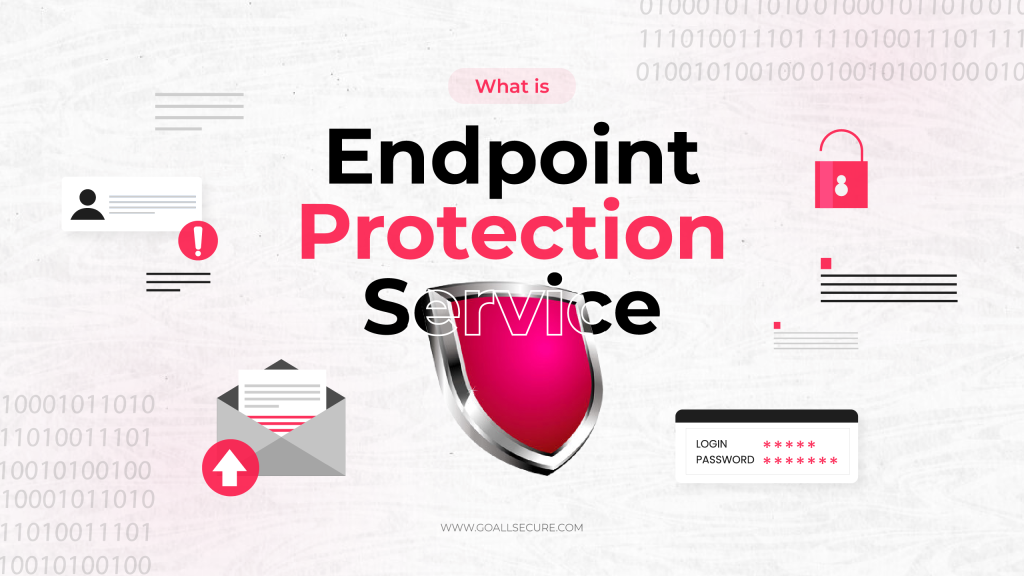The Internet today offers chances for businesses of all kinds to reach new and larger audiences, as well as the ability to use the latest technology to work more productively. Small businesses worldwide have been making a lot of progress with this. While technology has been a literal lifesaver for many, it has also become the cause of utter destruction for others. Small businesses have become a target for cyber attacks as they are the least prepared for them.
We frequently witness small businesses overlooking cyber security. When it comes to technology, they are so preoccupied with saving money that they don’t take the time to ensure its safety. In this blog post, we’ll explore some essential cyber security best practices tailored to small businesses. Along with answering why they are lucrative targets and what risks small businesses today face.
Why Are Small Businesses a Lucrative Target?
The simple answer is that they lack the resources that large organisations do, leaving small enterprises susceptible. The larger businesses can afford the strongest safeguards and devoted employees to make sure that systems and data are secure, but a small business, especially one that is fighting to stay open, may find this to be far more difficult. Cyber criminals are aware of this, which is why they target small firms. It is far simpler to breach a small business’s security or to discover another one that has let its defences down. Certainly, there have been numerous real-life cases of cyber attacks on small businesses to prove this theory right. Here are a few notable examples:
Magecart Attacks on E-commerce Sites
Numerous small e-commerce businesses have fallen victim to Magecart attacks. In these attacks, cyber criminals inject malicious code into the payment pages of websites, capturing customers’ credit card information during transactions. The British Airways breach in 2018 and the attack on Ticketmaster are high-profile instances of Magecart attacks.
Ransomware Attack on Code Spaces
Code Spaces, a small online code-hosting company, suffered a devastating ransomware attack in 2014. When Code Spaces attempted to regain control, the attackers deleted data, leading to the company’s closure.
Phishing Attack on Ubiquiti Networks
In 2015, networking technology company Ubiquiti Networks fell victim to a phishing scam that targeted an employee. The attackers posed as a senior executive and requested a transfer of funds. Ubiquiti transferred over $46 million to the fraudsters before realising the deception.
Business Email Compromise (BEC) Targeting Small Law Firms
Several small law firms have experienced BEC attacks, where cyber criminals impersonate clients or partners via email to divert funds or access sensitive legal information.
Data Breach at Targeted Marketing Firm Exactis
In 2018, Exactis, a small marketing and data aggregation firm, exposed a database containing 340 million records of personal information. This massive data breach highlighted the risks associated with handling vast amounts of customer data.
These cases underscore the importance of cyber security for small businesses. They demonstrate that cyber threats can lead to severe financial losses, damage to reputation, and, in some cases, the closure of businesses. Small businesses must prioritise cyber security measures to protect themselves and their customers from these threats.
What Threats and Risks Do Small Businesses Face?
According to research, 77% of all cyber crimes target small businesses, yet only 42% of small business owners are prepared for these cyber threats. Small businesses are often targeted by cyber criminals due to their perceived vulnerabilities. Here are some examples of cyber threats that small businesses commonly face:
- Phishing Attacks
- Ransomware
- Business Email Compromise (BEC)
- Distributed Denial of Service (DDoS)
- Malware Infections
- Insider Threats
- Unsecured Wi-Fi Networks
- SQL Injection
- Man-in-the-Middle (MitM) Attacks
- Credential Stuffing
- Zero-Day Exploits
- Supply Chain Attacks
- Cryptojacking
Countless aftermaths come with a cyber attack, especially for small businesses. Here are the possible impacts of a cyber attack:
- Financial losses due to business disruption or theft of financial data
- High costs to remove threats from the network
- Loss of reputation that might be irreversible
- Risks of a complete shutdown within 6 months
These examples highlight the diverse range of cyber threats and risks that small businesses may encounter. Small business owners and employees must be aware of these risks and implement strong cyber security measures to protect against them. In the next section of this blog, we list the best cyber security practices for small businesses.
Top Cyber Security Best Practices to Keep Your Small Business Out of Trouble
Cyber security should be considered in every business plan, whether it involves implementing cloud computing or simply using email and maintaining a website. Digital information theft has surpassed physical theft as the fraud that receives the most reports. Every company that uses the Internet is in charge of developing a security culture that will boost client and customer confidence. However, adding cyber security to your company does not require you to spend thousands of dollars. To protect client and business data, small enterprises can employ practical cyber security practices. Here is a list of measures that are needed for small businesses to keep themselves out of trouble:
Employee Training and Awareness
Start with your team. Ensure that all employees understand the basics of cybersecurity. Conduct regular training sessions to educate them about phishing scams, password management, and the importance of software updates. An informed workforce is your first line of defence.
Strong Password Policies
Enforce strict password policies within your organization. Encourage the use of complex, unique passwords and consider implementing multi-factor authentication (MFA) wherever possible. Password managers can also help employees securely store and manage their login credentials.
Regular Software Updates
Keep all software, including operating systems and applications, up to date. Cybercriminals often target known vulnerabilities in outdated software. Enable automatic updates or establish a schedule for regular manual updates.
Firewall and Antivirus Software
Install and regularly update firewall and antivirus software on all company devices. These tools help detect and prevent malicious activity before it reaches your network.
Data Encryption
Implement encryption for sensitive data, both in transit and at rest. This adds an extra layer of protection, making it difficult for hackers to decipher intercepted information.
Access Control
Restrict access to critical systems and data on a need-to-know basis. Limiting who can access sensitive information reduces the risk of insider threats and unauthorised external access.
Regular Backups
Frequently back up your business data and store backups in a secure, offsite location. In case of a cyberattack or data breach, having clean, up-to-date backups can be a lifesaver.
Incident Response Plan
Develop an incident response plan that outlines how your business will react to a cybersecurity incident. Assign roles and responsibilities so that everyone knows what to do in case of an emergency.
Vendor Security Assessment
If you work with third-party vendors or use cloud services, assess their cybersecurity practices. Ensure that they meet your security standards and requirements.
Regular Security Audits
Conduct regular security audits and vulnerability assessments. Identify and address potential weaknesses before hackers can exploit them.
Cyber Insurance
Consider investing in cyber insurance to mitigate the financial impact of a data breach or cyberattack. It can help cover the costs of recovery and legal expenses.
Stay Updated
Keep abreast of the latest cybersecurity threats and trends. Cybersecurity is an ever-evolving field, so staying informed is crucial to adapting your defences accordingly.
Cybersecurity is no longer optional, even for small businesses. Implementing these best practices can significantly reduce the risk of falling victim to cyber attacks. By fostering a culture of security awareness and proactively protecting your digital assets, your small business can thrive in today’s interconnected world while keeping your data and reputation intact.
It is crucial to bear in mind that, from a stable viewpoint, this is only a minimal set of security controls. Depending on your company and your budget, you may need to do more or decide to do less, especially if your organisation is required to comply with any state, federal, or industry compliance laws. GoAllSecure can help you with that and much more. We can handle all your cyber-security-related issues and also take away those frown lines. For more information about us, kindly call us at +91 85 2723 7851.

















 TRAVEL & HOSPITALITY
TRAVEL & HOSPITALITY HEALTHCARE
HEALTHCARE RETAILS & ECOMMERCE
RETAILS & ECOMMERCE BANKING & FINANCIAL
BANKING & FINANCIAL AutoMobile
AutoMobile MANUFACTURING
MANUFACTURING FOOD
FOOD EDUCATION
EDUCATION



